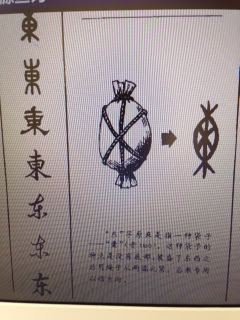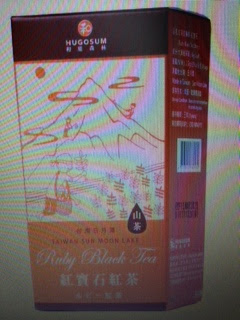October 4, 2020 - Washington D.C. Taiwanese School, Advanced Mandarin Conversation
· We discussed the following issues:
- Teacher Wu asked, "Joseph(高靖和), Did you do your homework yet? How did you wife name your Chinese name?" (吳老師問:“ ,你做完功課了嗎,你問你太太是怎麼給你取中文名字的?” - Wú lǎoshī wèn:“ Jìng hé , nǐ zuò wán gōngkèle ma, nǐ wèn nǐ Tàitài shì zěnme gěi nǐ qǔ zhōngwén míngzì de?”)
- Joseph (高靖和) said, "Yes, I asked my wife and she said it's not related to the sound of Joseph. It's the number of strokes, 31."Joseph(高靖和)說:“是的,我問我的太太,她說這與Joseph的音無關。 這是筆劃 - 31. ” Joseph(高靖和) shuō:“Shì de, wǒ wèn wǒ de tài tài, tā shuō zhè yǔ yuēsèfū de yīn wúguān. Zhè shì bǐhuà - 31."
- Steve (葛艾倫) said, "31 is a prime number. It's a lucky number for Chinese names." Steve (葛艾倫) 說:31是素數. 是中文名字的吉祥數字.” Steve (葛艾倫) shuō:“31 Shì sù shù, shì zhōngwén míngzì de jíxiáng shùzì”
- Teacher Wu said, "Steve (葛艾倫) always has good answer. Yes, numbers in strokes are important for an auspicious name that will bring good fortune to the person" 吳老師說:“Steve (葛艾倫)總是有很好的答案。是的,筆劃的數字對於一個吉祥的名字很重要,它將給人帶來好運。” Wú lǎoshī shuō:“Shǐ dì wén zǒng shì yǒu hěn hǎo de dá'àn. Shì de, bǐhuà
de shùzì duìyú yīgè jíxiáng de míngzì hěn zhòngyào, tā jiāng jǐ rén dài
lái hǎoyùn"
- Teacher Wu said, "Today, we will welcome a new student. Let's welcome our old classmate, Darrell Rico Doss ( 熊大東.)" 吳老師說:(今天,我們將歡迎新同學,Darrell Rico Doss ( 熊大東) ,參加我們的課. " - Wú lǎoshī shuō: "Jīntiān, wǒmen jiāng huānyíng xīn tóngxué, Darrell Rico Doss ( 熊大東( cānjiā wǒmen de kè.)"
(熊 - Xióng)- A big animal with the fire sounding cracking & hissing on the bottom
- Darrell Rico Doss (
熊大東) indicated that "A bear market means a great opportunity to accelerate your returns over longer periods" as a broker's point view
(大 - Dà)Big - to take the shape of a man who is stretching his arms & legs for making himself look big.
(東 - Dōng) East- The original shape was the "bundle of stuff" tied up with the rope on the top and the bottom. However, the shape of the sun sits in the middle of trees from the top and the bottom was also another word source which indicated no documents to support this description of the sum rises up from the east.
- Because Japan lies at the far West of the Pacific Ocean, the sun rises spectacularly over the sea to the East.
- Darrell Rico Doss (
熊大東)said, "My wife is Japanese. I like my nae very much." Darrell Rico Doss(
熊大東) 說, "我的太太是日本人. 我非常喜歡我的名字."
Darrell Rico Doss ( 熊大東)shuō, "Wǒ de tài tài shì rìběn rén. Wǒ fēicháng xǐhuān wǒ de míngzì." - Raymond (書宗) said, "I told my my mother that I do not like my name, (書宗) - "book ancestry" because it's boring. My grandfather who loves to read gave me this name. But, I like my young brother's name which means exceptional and wise." Raymond (書宗) 說:“我告訴我的母親,我不喜歡我的名字“書宗”,因為它很無聊。 我的祖父喜歡讀書。 他給我這個名字. 但是, 我喜歡我弟弟的名字, 智杰, 意思是聰明又傑出.” "Wǒ gàosù wǒ de mǔqīn, wǒ bù xǐhuān wǒ de míngzì “shū zōng”, yīnwèi tā hěn wúliáo. Wǒ de zǔfù xǐhuān dúshū. Tā gěi wǒ zhège míngzì. Dànshì, wǒ xǐhuān wǒ dìdì de míngzì, Zhì -Jié - yìsi shì cōngmíng yòu Jiéchū."
- Teacher Wu said, "Raymond, you love to read too, you just do not like to write homework!" jokingly!" 吳老師說:“Raymond (書宗),你也喜歡讀書,只是不喜歡寫功課!” 開玩笑地!" Wú lǎoshī shuō:“Raymond (書宗) , nǐ yě xǐhuān dúshū, zhǐshì bù xǐhuān xiě gōng kè! Kāiwánxiào de!”
- Teacher Wu asks, "Joseph(高靖和) Please say "thanks" for your wife that she gave you a very nice Chinese name." 吳老師說:“Joseph(高靖和), 請謝謝您的太太,她給您起了一個很好的中文名字。””Wú lǎoshī shuō:“Joseph (高靖和) (Qǐng xièxiè nín de Tàitài, tā gěi nín qǐle yīgè hěn hǎo de zhōngwén míngzì. )
- Steve (葛艾倫) said, "I recently received a new-born baby card. The baby's name is old Chinese characters. My mother-in-law said, why using such difficult characters for Chinese name!"Steve (葛艾倫) 說:, "我最近收到了新生嬰兒卡片,嬰兒的名字是古老的中文字。 我婆婆說,為什麼用這麼難懂的名字?” Steve (葛艾倫) shuō:“Wǒ zuìjìn shōu dàole xīnshēng yīng'ér Kǎpiàn, yīng'ér de míngzì shì gǔlǎo de zhōngwén zì. Wǒ pópo shuō, wèishéme yòng zhème nán dǒng de míngzì!”
- Teacher Wu said, "Chinese names are important. They stay with you for your life. Therefore, it's not only the meaning but also the numbers of the character strokes." 吳老師說:“中文名字很重要,因為它與您一生。 因此,中文名字不僅是意思,而且是筆劃數。" Wú lǎoshī shuō:“Zhōngwén míngzì hěn zhòngyào, yīnwèi tā jiāng yǔ nín yīshēng. Yīncǐ, zhōngwén míngzì bùjǐn shì Yìsi, érqiě shì bǐhuà shù."
We discussed Lesson 61 (Travelling Around the Island,) 第61課 (環島旅行)-dì 61 kè (Huándǎo lǚxíng)
We are going to visit Sun-Moon Lake and Taroko National Park. - 我們要去日月潭和太魯閣國家公園玩 - Wǒmen yào qù rìyuètán hé tài lǔ gé guójiā gōngyuán wán.
- Steve (葛艾倫), Darrell Rico Doss (
熊大東) and Joseph(高靖和) said, "I have never been to Taroko National Park." Steve (葛艾倫) , Darrell Rico Doss (
熊大東) 和 Joseph(高靖和)說:“我從來沒有去過太魯閣國家公園”” Steve (葛艾倫), Darrell Rico Doss (
熊大東) hé Joseph(高靖和) shuō, : "Wǒ Cónglái méiyǒu qùguò tài lǔ gé guójiā gōngyuán."
- Joseph (高靖和) said,
"I like the red tea from Sun-Moon Lake."Joseph(高靖和)說:“我喜歡日月潭的紅茶. ” Joseph(高靖和) shuō: “Wǒ xǐhuān rìyuètán de hóngchá ."
Morning Fog Tea from Sun-Moon Lake - 日月潭的朝霧紅茶 - Rìyuètán de Zhāo Wù Hóngchá - Darrell Rico Doss (熊大東)said, "I also like the red tea from Sun-Moon Lake. I went there two years ago for business trip. We were treated like "Prince-Tourists."" Darrell Rico Doss(熊大東) 說, "我也喜歡日月潭的紅茶。 我兩年前去過那裡出差。 我們被當作王子遊客對待." Darrell Rico Doss (熊大東)shuō: "Wǒ yě xǐhuān rìyuètán de hóngchá. Wǒ liǎng nián qián qùguò nàlǐ ChūChà. Wǒmen bèi dàng zuò wángzǐ yóukè duìdài."
Rubly Black Tea from Sun-Moon Lake 紅寶石紅茶 - Hóngbǎoshí Hóngchá -
Raymond (書宗) said, "I have been to Taroko National Park. The scenery is very pretty. But, I stayed at Hualien." Raymond (書宗) 說:“我去過太魯閣國家公園。 風景很美。 可是我住在花蓮.” Raymond (書宗) shuō: "Wǒ qùguò tài lǔ gé guójiā gōngyuán. Fēngjǐng hěn měi. Kěshì wǒ zhù zài huālián."
- Teacher Wu said, "Yes! Taiwan's scenery is pretty, however, the people in Taiwan are even prettier. They are very kind and friendly."吳老師說:“是的! 台灣風景很美,但是人民更美!他們非常友善,和氣!”Wú lǎoshī shuō:“Shì de! Táiwān fēngjǐng hěn měi, dànshì rénmín què měi!-Tāmen fēicháng yǒushàn, héqì!”
- Steve (葛艾倫), said, "There is no class next week due to "Indigenous People's Holiday."" Steve (葛艾倫) 說:“由於“Indigenous People's Holiday”,下星期不上課。” Steve (葛艾倫), shuō, "Yóuyú “Indigneous People's Holiday”, Xià Xīngqí bù shàngkè."
- Teacher Wu said, "I will not assign you homework next week. But, please take a look at Kengting National Park. We will visit there at the following week." 吳老師說:“下星期我不會分配功課。但是,請看看墾丁國家公園。我們將在下下星期去那裡玩。 "Wú lǎoshī shuō:“Xià Xīngqí wǒ bù huì fēnpèi gōngkè. Dànshì, qǐng KànKàn kāngdìng guójiā gōngyuán. Wǒmen xià xià xīngqí jiāng qù nàlǐ wán."
Kenting National Park - Wikipedia
Teacher Wu said, "Let's review the word - Envy - from last week's lesson. What are you envious of now?" 吳老師說:“吳老師說:“讓我們複習上星期的字- 羨慕。您現在羨慕什麼?”。 "Wú lǎoshī shuō: “Ràng wǒmen Fùxí shàng Xīngqí de zì - Xiànmù. Nín xiànzài xiànmù shénme?”- Steve (葛艾倫), said, "I am envious of Raymond's good Chinese Speaking." Steve (葛艾倫) 說:“我很羨慕Raymond (書宗) 會說很好的中文. " Steve (葛艾倫), shuō, "Wǒ hěn xiànmù Raymond (書宗) huì shuō hěn hǎo de Zhōngwén."
- Steve (葛艾倫), said, "I am envious of daughter's new bicycle that we bought for her." Steve (葛艾倫) 說:“我羨慕我們為女兒買的一部新自行車/腳踏車. " Steve (葛艾倫), shuō, "Wǒ xiànmù wǒmen wèi nǚ'ér mǎi de yī bù xīn zìxíngchē/Jiǎo tà chē."
- Joseph (高靖和) said, "I am envious of my friends who can go to visit Taiwan. I will not move to Taiwan. "Joseph(高靖和)說:“我很羨慕我的朋友們可以去台灣玩。 我不會搬到台灣” Joseph(高靖和) shuō: “Wǒ hěn xiànmù wǒ de péngyǒumen kěyǐ qù táiwān wán. Wǒ bù huì bān dào táiwān."
- Darrell Rico Doss (熊大東)said, "I am envious of my friends who are able to work in Taipei and Tokyo." Darrell Rico Doss(熊大東) 說, "我很羨慕我的朋友們可以在台北和東京工作." Darrell Rico Doss (熊大東)shuō: Wǒ hěn xiànmù wǒ de péngyǒumen kěyǐ zài táiběi hé dōngjīng gōngzuò
- Teacher Wu said, "I am envious of you all stdying so hard. But I can't. I have to cook the soft rice everyday because my husband had his tooth pulled this week."吳老師說:“我很羨慕你們這麼努力的學習。但是,我不能。我必須每天煮稀飯。我丈夫這星期拔牙了。Wú lǎoshī shuō:“Wǒ hěn xiànmù nǐmen zhème nǔlì de xuéxí. Dànshì, wǒ bùnéng. Wǒ bìxū měitiān zhǔ xīfàn. Wǒ zhàngfū zhè xīngqí báyále."
- Raymond (書宗) said, "I am envious of my daughters that they have no homework." Raymond (書宗) 說:“我羨慕我的女兒,他們沒有功課.” Raymond (書宗) shuō: "Wǒ xiànmù wǒ de nǚ'ér, tāmen méiyǒu gōngkè."
Xièxiè! Lǎoshī!
謝謝! 老師!
- Steve (葛艾倫), said, "There is no class next week due to "Indigenous People's Holiday."" Steve (葛艾倫) 說:“由於“Indigenous People's Holiday”,下星期不上課。” Steve (葛艾倫), shuō, "Yóuyú “Indigneous People's Holiday”, Xià Xīngqí bù shàngkè."
- Teacher Wu said, "Yes! Taiwan's scenery is pretty, however, the people in Taiwan are even prettier. They are very kind and friendly."吳老師說:“是的! 台灣風景很美,但是人民更美!他們非常友善,和氣!”Wú lǎoshī shuō:“Shì de! Táiwān fēngjǐng hěn měi, dànshì rénmín què měi!-Tāmen fēicháng yǒushàn, héqì!”







No comments:
Post a Comment